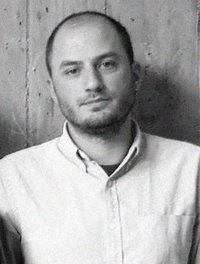
Vita
Ender Iplikci is a PhD candidate in European Urban Studies (IPP-EU) at Bauhaus University Weimar. He holds his bachelor degree in City and Regional Planning and master degree in Urban Design from Middle East Technical University in Ankara. Ender has worked for five years in the Chamber of City Planners of Turkey Ankara Branch as assistant secretary and later secretary of the board of the branch. His doctoral research focuses on the relationship between urban form in the fragmental urban edges of Ankara and the new modes of everyday life produced by this fragmental, transitory, unbalanced and formless urbanization process on the periphery of the city. He is also awarded by a DAAD scholarship.
Abstract
The tension and diffusion between the rural and the urban becomes one of the key concept of contemporary urbanism literature and urbanization processes. The main interest of this study is focusing on the spatial form of the urban, under concentration and extension circumstances in twenty-first century. In this regard, rather than drawing a contemporary global urban condition, this study aims underlying the formation of urban fabric on the edges of the cities. This formation represents the process of producing a new urban form on the periphery and produce new modes of everyday life practices. The concept of everyday life promises hopes to comprehend the morphologic, economic, political, social and environmental issues of the fragmental urban edges. Accordingly, the urban development of Ankara, especially in the last decade, makes the city a unique laboratory in terms of urbanization process on its edges which is fragmental, transitory, unbalanced and formless. Therefore, Ankara is chosen as a case study area to explore the relationship between the space under urbanization process and the new modes of everyday life produced by this urban form.
Keywords
everyday life
planetary urbanization
rural-urban relationship
land speculation
housing
